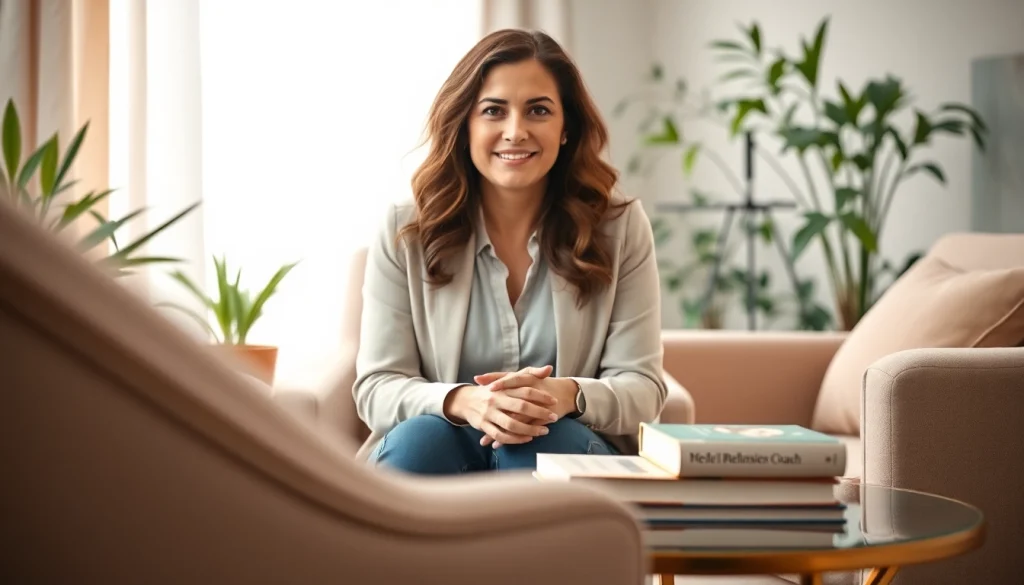The Role of a Relationship Coach
Understanding the Basics of Relationship Coaching
Relationship coaching is a form of professional support designed to help individuals and couples navigate the often-complex dynamics of personal relationships. Unlike therapy, which typically addresses emotional or psychological issues rooted in the past, relationship coaching focuses on the present and future. Coaches are trained to provide guidance and insights, assisting clients in setting practical goals and developing strategies to achieve them. A relationship coach helps clients build stronger connections, enhance their communication skills, and cultivate better understanding in their interactions.
The Importance of Communication in Relationships
Effective communication is the cornerstone of any successful relationship. It’s not just about speaking; it involves active listening, understanding non-verbal cues, and engaging in empathetic dialogue. A relationship coach can assist clients in recognizing their communication patterns, identifying barriers to effective exchange, and implementing strategies that foster clearer dialogue. Techniques such as reflective listening, where one restates what another person has said before responding, can significantly improve understanding and decrease the likelihood of conflicts.
How a Relationship Coach Can Benefit You
Engaging with a relationship coach can be immensely beneficial for individuals seeking to enrich their emotional connections. Coaches employ various techniques tailored to clients’ unique situations, helping to clarify relationship goals, whether that involves improving current dynamics, recovering from a difficult phase, or preparing for the future. Through personalized coaching sessions, clients often report increased self-awareness and a deeper understanding of their partners’ needs and perspectives.
Finding the Right Relationship Coach
Key Traits to Look for in a Relationship Coach
When searching for a relationship coach, it’s essential to consider specific traits that align with your needs. Look for someone who is empathetic, a skilled communicator, and has a solid understanding of interpersonal dynamics. A good coach should have relevant certifications, experience in relationship coaching, and a track record of successfully helping clients. Furthermore, their coaching style should resonate with you, making you feel comfortable and understood during sessions.
Questions to Ask During Your First Session
Your first session with a relationship coach is a valuable opportunity to assess compatibility and define the coaching relationship. Consider asking questions such as:
- What is your coaching philosophy and approach?
- Can you share examples of past successes with clients?
- How do you customize your coaching strategies to fit individual needs?
- What are your credentials and experience in relationship coaching?
- What goals can I set to track my progress?
These inquiries will not only clarify the coach’s methods but also help you gauge whether their approach aligns with your expectations.
Budgeting for Relationship Coaching Services
Cost is an important consideration when it comes to relationship coaching. It’s vital to find a coach whose fees fit within your budget while ensuring they possess the appropriate qualifications. Rates can vary widely; some coaches charge by the hour, while others offer packages for multiple sessions. Discussing cost openly during your initial consultation can help manage expectations and plot a course for ongoing support.
Common Challenges Addressed by Relationship Coaches
Navigating Conflict and Disagreements
Conflict is a natural part of any relationship, but how it is managed can determine the level of satisfaction and harmony within the partnership. Relationship coaches equip clients with tools to effectively navigate disagreements. Techniques may include cultivating emotional intelligence to recognize feelings during conflict, learning negotiation skills, and understanding when to compromise. Coaches help couples transform conflict into an opportunity for growth and deeper connection.
Improving Intimacy and Connection
Intimacy goes beyond physical attraction; it encompasses emotional closeness and trust. Many couples struggle with maintaining intimacy over time, especially amidst busy lives and external stressors. A relationship coach can provide strategies to foster intimacy, which may include setting aside quality time for each other, engaging in shared activities, and facilitating open discussions about desires and boundaries. Enhanced intimacy leads to increased satisfaction and a stronger partnership foundation.
Strategies for Rebuilding Trust
Trust is fundamental in any relationship, and when it’s compromised, recovery can be challenging. A relationship coach helps clients develop actionable strategies for rebuilding trust after a breach, such as consistent communication, transparency, and accountability. Through exercises that promote vulnerability and understanding, clients learn to navigate the delicate process of renewing trust while fostering a sense of security and support in their relationship.
The Coaching Process: What to Expect
Setting Goals with Your Relationship Coach
Setting clear, achievable goals is a critical first step in the coaching process. Together with the coach, clients will identify specific areas for improvement, whether that involves enhancing communication skills or addressing recurring conflicts. This goal-setting phase is vital, as it provides direction and a framework for measuring progress throughout the coaching journey.
Techniques and Tools Used in Coaching Sessions
Relationship coaches often use a variety of techniques and tools designed to facilitate dialogue and introspection. These may include role-playing exercises, visualization techniques, and guided discussions. Coaches may also introduce concepts from psychological theories, such as John Gottman’s principles on healthy relationships, to ground their methodology in research-backed practices. The tools employed will depend on the unique dynamics of the clients they are working with.
Measuring Progress and Outcomes
To ensure that the coaching relationship is effective, measuring progress is essential. Coaches will often conduct regular check-ins to assess the clients’ feelings about their relationship journey. Using metrics such as client feedback, increased satisfaction in key areas, and the resolution of initial concerns, both the coach and clients can determine the overall effectiveness of their sessions and adapt strategies as needed.
Success Stories and Testimonials
Real-life Examples of Transformed Relationships
Success stories from past clients can provide powerful insights into the potential impact of relationship coaching. Many couples have reported substantial improvements in their communication, a deeper understanding of each other’s needs, and a rekindling of emotional connection after engaging with a coach. For instance, one couple, initially on the brink of separation, was able to navigate their differences and emerge with a strengthened bond through dedicated sessions focused on empathy and negotiation.
Client Experiences with Their Relationship Coach
Client testimonials often highlight individual journeys of growth. Many individuals express a newfound clarity in what they want from their relationships, understanding that their needs matter too. A common theme is the realization that healthy relationships are built on mutual effort, respect, and understanding, bolstered by the guidance provided during coaching sessions.
Long-term Benefits of Coaching for Couples
The long-term benefits of relationship coaching extend well beyond the sessions. Couples often leave coaching not just with improved skills and strategies but also with a renewed commitment to their relationship. The skills learned can lead to increased stability, greater happiness, and a healthier emotional environment as they continue to communicate, deal with conflicts effectively, and prioritize their connection over time. Coaches empower clients to create a fulfilling relationship that evolves positively, adapting to life’s changes and challenges.


